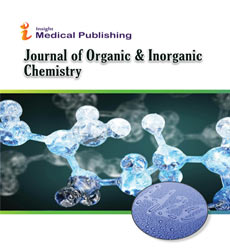Abstract
The Connection between food toxicology and lifestyle disorder �?? A Literature Review
Around 39% of the adult world population is overweight and 13 % are obese (WHO). One of the major reasons for this (As per Harvard Researchers)
is certain food toxins responsible for increasing “craveability” of junk food. Another study suggests the presence of certain chemical obesogens
which disrupt the leptin and ghrelin (appetite hormones) also affect the size of adipocytes.
Prevalence of polycystic ovarian syndrome is claimed to be varying between 6-10% in various studies including the major ones from National
institute of Health (NIN), Rotterdam and Androgen excess society.
Thyroid on the other hand is affecting 10% of the population (as per a study conducted in 8 major cities of India)
The sedentary lifestyle, convenience foods & improper cooking practices though are to be blamed for the increasing prevalence of all lifestyle disorders
but at the same time the increasing exposure to environmental toxins including microbiological, natural food toxins, polymer leaching and its residues
including phthalates and bisphenols and the biological magnification of the pesticides across the food chain are all the more responsible for the
hormonal imbalances caused by the chemicals mimicking the hormones in the natural biochemical processes hence causing the lifestyle disorders.
The purpose of this presentation is to compile and highlight the most common toxins affecting the nutritional status of the masses, their common
sources and mode of action.
The presentation also puts light on the solution-based approach (including the importance of an Anti- inflammatory diet) and steps which can be
taken to rectify the fundamentals which are going wrong.
Author(s):
Manisha Mehta
Abstract | PDF
Share this

Google scholar citation report
Citations : 150
Journal of Organic & Inorganic Chemistry received 150 citations as per google scholar report
Abstracted/Indexed in
- Google Scholar
- China National Knowledge Infrastructure (CNKI)
- Directory of Research Journal Indexing (DRJI)
- WorldCat
- Geneva Foundation for Medical Education and Research
- Secret Search Engine Labs
Open Access Journals
- Aquaculture & Veterinary Science
- Chemistry & Chemical Sciences
- Clinical Sciences
- Engineering
- General Science
- Genetics & Molecular Biology
- Health Care & Nursing
- Immunology & Microbiology
- Materials Science
- Mathematics & Physics
- Medical Sciences
- Neurology & Psychiatry
- Oncology & Cancer Science
- Pharmaceutical Sciences

